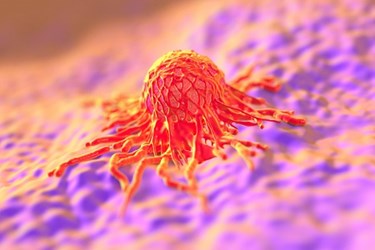Cancer Screening Tool Reduces Costs And Invasiveness

By Christine Kern, contributing writer

Inaccurate and unnecessary cancer screenings cost $88.7 billion annually.
As mounting pressure is put on the healthcare system to reduce costs while improving outcomes, there is a growing need for increased accuracy and closer vetting of testing done to screen for cancer and other diseases. Inaccurate and unnecessary cancer screenings in the U.S. cost an estimated $88.7 billion a year as physicians perform more screenings than in any other country with advanced healthcare. As cancer rates are anticipated to grow by 57 percent worldwide over the next twenty years, the economic impact of these continued screenings must be addressed.
One company, NuView Life Science, has created a cancer screening tool that reduces the invasiveness and costs to create better outcomes for patients. According to Cancer.net, while screening tests can help with detection of cancer at earlier, more treatable stages, they also carry risks including over diagnosis, false positives, increased testing, and false reassurance.
The most commonly overused and inaccurate screenings are for breast and prostate cancer. Paul Crowe, chairman and CEO of NuView Life Sciences says, “Traditional screening tools can’t get down to a patient-specific level of diagnosis and are often limited in diagnostic ability.” Crowe explains the rush to screen patients for cancer — regardless of their medical history — ultimately is a misuse and waste of resources driving up costs for those involved.
Current prostate cancer screening methods, including prostate-specific antigen (PSA) tests, are often unreliable and projected to cost some $17.4 billion annually. These unreliable results can often lead to profoundly negative, lasting impacts on patients and outcomes.
NuView is developing a new precision screening tool based on its NV‑VPAC1 technology, a cancer-specific urine screening tool that can be used to screen for both prostate and bladder cancer by accurately detecting cancer cells in voided urine specimens. This type of screening provides more accurate results at a lower cost than traditional screening tools like the PSA test, allowing physicians to quickly and correctly diagnose cancer in laboratory-type settings.
Additionally, NuView is developing screening tools for breast cancer. Mammography is currently the only screening method available, but it cannot reliably detect precancerous lesions and over 80 percent of women who receive abnormal mammogram results must then undergo invasive, painful biopsies and other treatments, only to have further tests prove the masses to be benign. Of the 1.6 million breast biopsies done annually in the U.S. alone, as many as 1.3 million of them result in a benign diagnosis. Better screening tools could drastically reduce the number of unnecessary and invasive procedures that hike up medical costs each year.
Crowe stays, “It’s time to replace current diagnostic tools with precision-based, cancer-specific screening methods. The benefits are two-fold: patients are saved from unnecessary tests and treatment, which increases their quality of life and preserves their health status; and secondly, our healthcare system is saved millions — perhaps billions — of dollars every year that are wasted on pointless tests and therapeutic interventions.”
